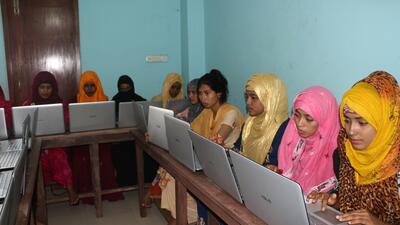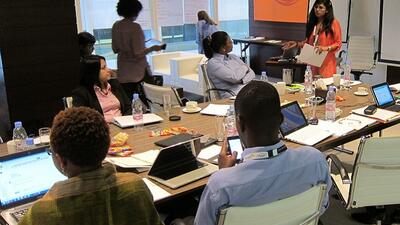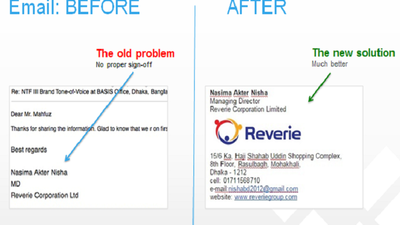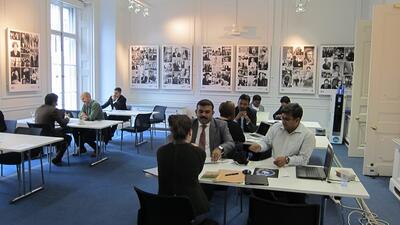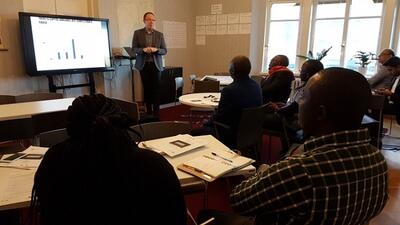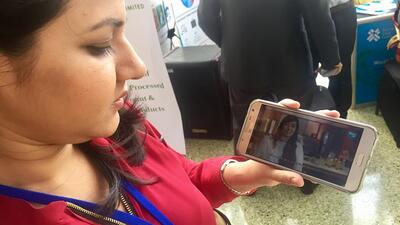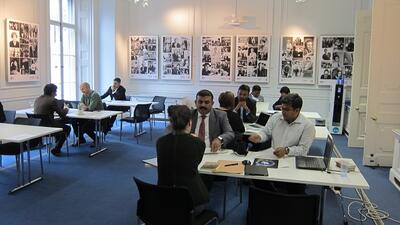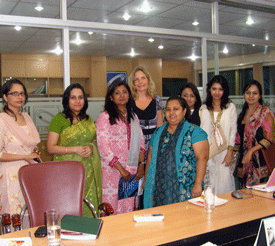
What role for Bangladeshi women in ICT? (en)
The information and communications technology (ICT) industry in Bangladesh is a thriving and is offering both well paid and highly skilled jobs. But the future success of the sector depends largely on the ability of attracting both visionary entrepreneurs and qualified employees. Despite these challenges, the industry appears to ignore half of the available brains and the growth potential of a key resource base: women.
Currently, there are only a handful of female entrepreneurs in the Bangladeshi software industry and there is a chronic underrepresentation of female workers, managers and business owners throughout the sector.
The challenge to motivate women to choose ICT as a career is, however, a worldwide problem. According to a research paper by Klara Nelson and Natasha Veltri, two academics, vocational interests appear to play a crucial role in gender-occupational choices and gender disparity in the ICT field. Where women tend to choose people-oriented careers, men gravitate towards object-oriented careers. Culture is another element influencing career choices for women in the ICT work-force. South Asian women, for example, are strongly influenced by parents and families in their career choice, while American women attribute their choice of ICT as career to peers or by chance.
As part of the Bangladesh IT Management Programme (BITMAP), a brain-storming session was held among key female role models — largely CEOs and entrepreneurs — to identify both the key challenges and what attracts and motivates women to work in the ICT industry.
The brain-storming session suggested that one of the main barriers is ‘the mind-set of families’, for example a negative perception that the ICT industry is not offering suitable jobs for women. While the role models found work in the male dominated industry tough, they did so despite what they perceive as a lack of respect for women in the industry, and they have to continuously prove themselves to family and co-workers.
For female entrepreneurs wishing to enter the industry another problem is the lack of knowledge about how to set up a business. But what appears to be the largest barrier for female entrepreneurs in (and outside) the ICT industry in Bangladesh is money. As women do not own property or other collaterals, they are prevented from obtaining loans and financing. For the same reason, the few existing female entrepreneurs and role-models in Bangladesh’s ICT industry are mostly working in the companies of their fathers or their husbands.
The last and very interesting point mentioned in the brain-storming session is that the industry is considered to be a creative business where it is possible to make a huge difference with the help of IT. Bangladesh would certainly benefit from more women using IT creatively to change the life of the poor while creating high value added jobs.
At a recent seminar on women in ICT held American International University Bangladesh, Dhaka, showed similar results. A questionnaire answered by 42 female students showed that 71% believed that if the challenges could be overcome, a career in the ICT industry would be attractive. The seminar also highlighted similar concerns about the barriers to enter the ICT sector, including travelling (far and late), family pressure, harassment from co-workers and child care.
The students argued that to increase the number of women in the ICT sector, more should be done to create awareness about the actual opportunities the industry offers, such as good career opportunities, high salaries and continuous training and development throughout the career. These benefits were also highlighted at a session on Women and ICTs at the eAsia Event in December 2011, which was supported by the International Trade Centre’s NTFII Bangladesh project.
To ensure that more women overcome the barriers that prevent them from choosing career in ICT, it is necessary to create a positive awareness of the opportunities both among the women and their families. Likewise, an effort is required to make the industry recognize women as a potential, but untapped pool of qualified resources. But if more female entrepreneurs are to be motivated to start their own business, what they need most of all is access to finance.
Henriette Kahré Freris is Chief Consultant at the Danish Federation of SMEs.
Learn more about ITC’s NTF II Bangladesh project.






